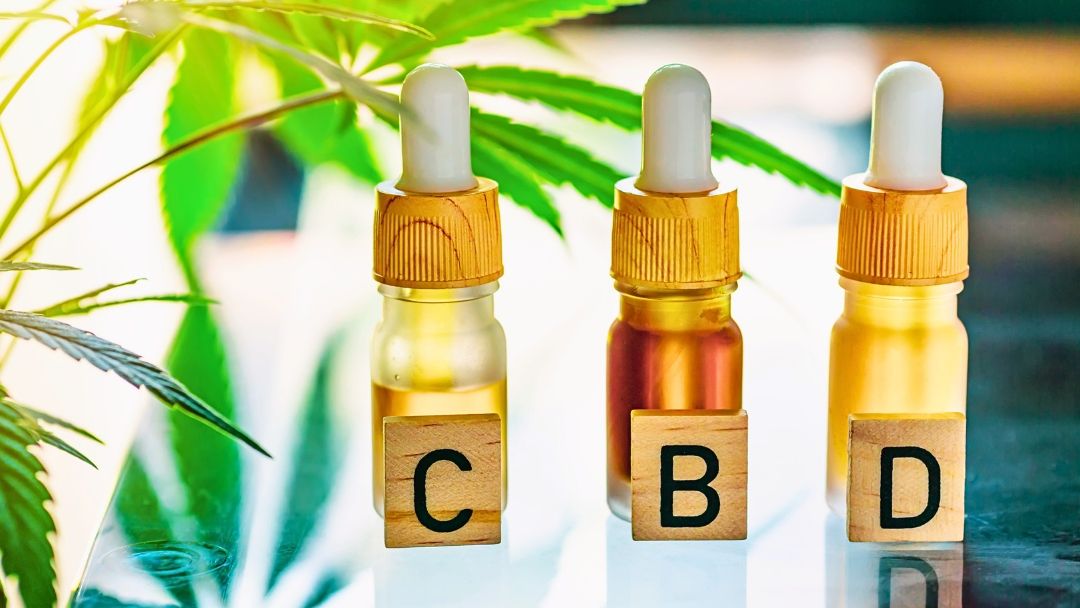Sore joints, swollen muscles, stiff backs — if you work in the trades, these symptoms might feel all too familiar. Inflammation is often behind that persistent discomfort. Inflammation is the body’s natural response to injury or stress.
In the short term, it’s helpful — part of the healing process. But when inflammation becomes chronic, it can lead to pain, joint damage, and long-term health issues. Whether it flares up after a long shift, sticks around from an old injury, or stems from a chronic condition like arthritis, inflammation can make everyday tasks harder and recovery slower. Many tradespeople experience this kind of ongoing inflammation, especially in the knees, shoulders, back, or hands.
While traditional treatments like NSAIDs or opioids are commonly prescribed, they’re not always effective long-term — and they come with risks. That’s where medical cannabis may offer a safer, natural, science-backed option worth exploring.
In the short term, it’s helpful — part of the healing process. But when inflammation becomes chronic, it can lead to pain, joint damage, and long-term health issues. Whether it flares up after a long shift, sticks around from an old injury, or stems from a chronic condition like arthritis, inflammation can make everyday tasks harder and recovery slower. Many tradespeople experience this kind of ongoing inflammation, especially in the knees, shoulders, back, or hands.
While traditional treatments like NSAIDs or opioids are commonly prescribed, they’re not always effective long-term — and they come with risks. That’s where medical cannabis may offer a safer, natural, science-backed option worth exploring.

How Cannabis Helps Reduce Inflammation
Medical cannabis interacts with the body’s endocannabinoid system (ECS) — a network of receptors that helps regulate inflammation, pain, immune response, and more. When cannabinoids like CBD (cannabidiol) and THC (tetrahydrocannabinol) bind to CB2 receptors (which are found in immune tissues), they may help reduce the body’s inflammatory response by modulating immune signalling pathways.
According to a 2009 review in Future Medicinal Chemistry, cannabinoids suppress the release of pro-inflammatory cytokines, reduce oxidative stress, and limit immune cell migration to inflamed areas. That means cannabis doesn't just mask symptoms — it may help address key drivers of inflammation.
Managing inflammation proactively may help improve comfort, movement, and quality of life over time.
According to a 2009 review in Future Medicinal Chemistry, cannabinoids suppress the release of pro-inflammatory cytokines, reduce oxidative stress, and limit immune cell migration to inflamed areas. That means cannabis doesn't just mask symptoms — it may help address key drivers of inflammation.
Managing inflammation proactively may help improve comfort, movement, and quality of life over time.

Which Cannabinoids Are Most Effective?
Not all cannabis products are the same. Here are the key players when it comes to fighting inflammation:
- CBD: Non-intoxicating and well-tolerated, CBD is the most researched cannabinoid for inflammation. It may help reduce swelling, joint pain, and overactive immune signalling — CBD is often the first-line choice for people seeking relief without the high.
- THC: THC may also contribute to inflammation relief, especially when paired with CBD in balanced ratios. THC can enhance the benefits of CBD when used in small, controlled amounts — a phenomenon known as the “entourage effect.” Some individuals find THC-dominant products helpful at night, especially for pain-related sleep disturbances.
- CBG and CBC: While not as well-known as CBD or THC, these cannabinoids are gaining attention for their anti-inflammatory potential. Early lab and animal studies suggest CBG may help reduce inflammation linked to gut and joint issues, while CBC appears to calm overactive immune responses. When included in full-spectrum products, they may work alongside other cannabinoids to support overall relief.

How to Use Cannabis for Inflammation
In Ontario, LiUNA members can access legal, physician-authorized medical cannabis through licensed producers. Depending on your needs and preferences, here are some of the best formats to consider:
✅ CBD-Dominant Oils
Taken under the tongue or swallowed, oils offer long-lasting, full-body relief. They’re a great starting point for inflammation and are easy to dose gradually. Start low and slow to find your optimal dose.
✅ Capsules
Offer a consistent, pre-measured dose of CBD, THC, or both. Ideal for those who want a pill-like format for ease of use.
✅ Topicals
Perfect for localized inflammation — like sore joints, muscle tension, or repetitive strain injuries. Creams, balms or gels can be applied directly to the skin without causing a high.
✅ CBD-Dominant Oils
Taken under the tongue or swallowed, oils offer long-lasting, full-body relief. They’re a great starting point for inflammation and are easy to dose gradually. Start low and slow to find your optimal dose.
✅ Capsules
Offer a consistent, pre-measured dose of CBD, THC, or both. Ideal for those who want a pill-like format for ease of use.
✅ Topicals
Perfect for localized inflammation — like sore joints, muscle tension, or repetitive strain injuries. Creams, balms or gels can be applied directly to the skin without causing a high.

What About Arthritis?
For older adults or members dealing with repetitive strain, arthritis is a common concern. The Arthritis Society of Canada reports that both CBD and low-dose THC may help manage arthritis-related inflammation, especially when traditional treatments aren’t enough.
Key Takeaways
- Medical cannabis may help reduce inflammation by modulating immune activity and oxidative stress — two key drivers of chronic pain.
- CBD is a great starting point, but low doses of THC or full-spectrum products may offer enhanced relief.
- Available formats include oils, capsules, and topicals, all legal in Ontario.
- Managing inflammation early can protect long-term health, reduce medication use, and improve quality of life on and off the job.
Ready to Get Started?
If inflammation is affecting your work or recovery, talk to a cannabis-trained physician and complete a short JADEO course to access coverage through your union health benefits.
Inflammation doesn’t have to be something you just live with — explore your options, and find relief that fits your lifestyle.
Inflammation doesn’t have to be something you just live with — explore your options, and find relief that fits your lifestyle.
Sources
1. Arthritis Society Canada. “Medical Cannabis.” Arthritis Society Canada, https://arthritis.ca/treatment/your-patient-journey/medical-cannabis.
Accessed 17 June 2025.
2. Borrelli, Francesca, et al. “Beneficial Effect of the Non-Psychotropic Plant Cannabinoid Cannabigerol on Experimental Inflammatory Bowel Disease.” Biochemical Pharmacology, vol. 85, no. 9, 2013, pp. 1306–1316.https://www.sciencedirect.com/science/article/pii/S0006295213000512.
Accessed 17 June 2025.
3. El-Hamdi, Hanan, et al. “Cannabigerol Attenuates Inflammation in In Vitro Models of Rheumatoid Arthritis.” International Journal of Molecular Sciences, vol. 24, no. 1, 2023, article 855. https://www.mdpi.com/1422-0067/24/1/855.
Accessed 17 June 2025.
4. Musella, Alessia, et al. “Cannabichromene Inhibits the NLRP3 Inflammasome Pathway and IL-6/TYK2/STAT3 Signaling in LPS-Stimulated Macrophages.” International Journal of Molecular Sciences, vol. 24, no. 19, 2023, article 14555. https://www.ncbi.nlm.nih.gov/pmc/articles/PMC10534668/.
Accessed 17 June 2025.
5. Nagarkatti, Prakash, et al. “Cannabinoids as Novel Anti-Inflammatory Drugs.” Future Medicinal Chemistry, vol. 1, no. 7, 2009, pp. 1333–1349. NCBI, https://www.ncbi.nlm.nih.gov/pmc/articles/PMC2828614/.
Accessed 17 June 2025.
6. Nichols, Jacob M., and Barbara L. Kaplan. “Immune Responses Regulated by Cannabidiol.” Cannabis and Cannabinoid Research, vol. 5, no. 1, 2020, pp. 12–31. NCBI, https://www.ncbi.nlm.nih.gov/pmc/articles/PMC9124761/.
Accessed 20 June 2025.
7. Russo, Ethan B. “Taming THC: Potential Cannabis Synergy and Phytocannabinoid-Terpenoid Entourage Effects.” British Journal of Pharmacology, vol. 163, no. 7, 2011, pp. 1344–1364.https://www.ncbi.nlm.nih.gov/pmc/articles/PMC3165946/
Accessed 20 June 2025.
